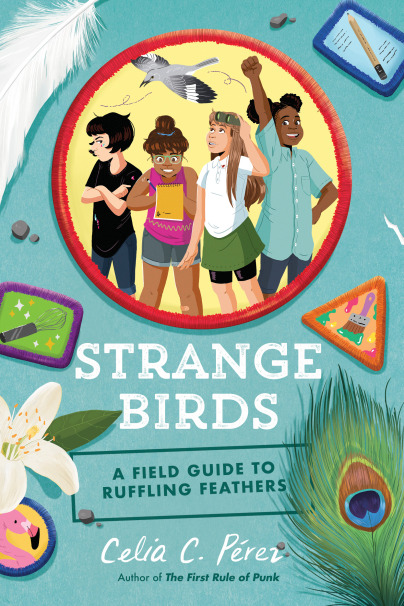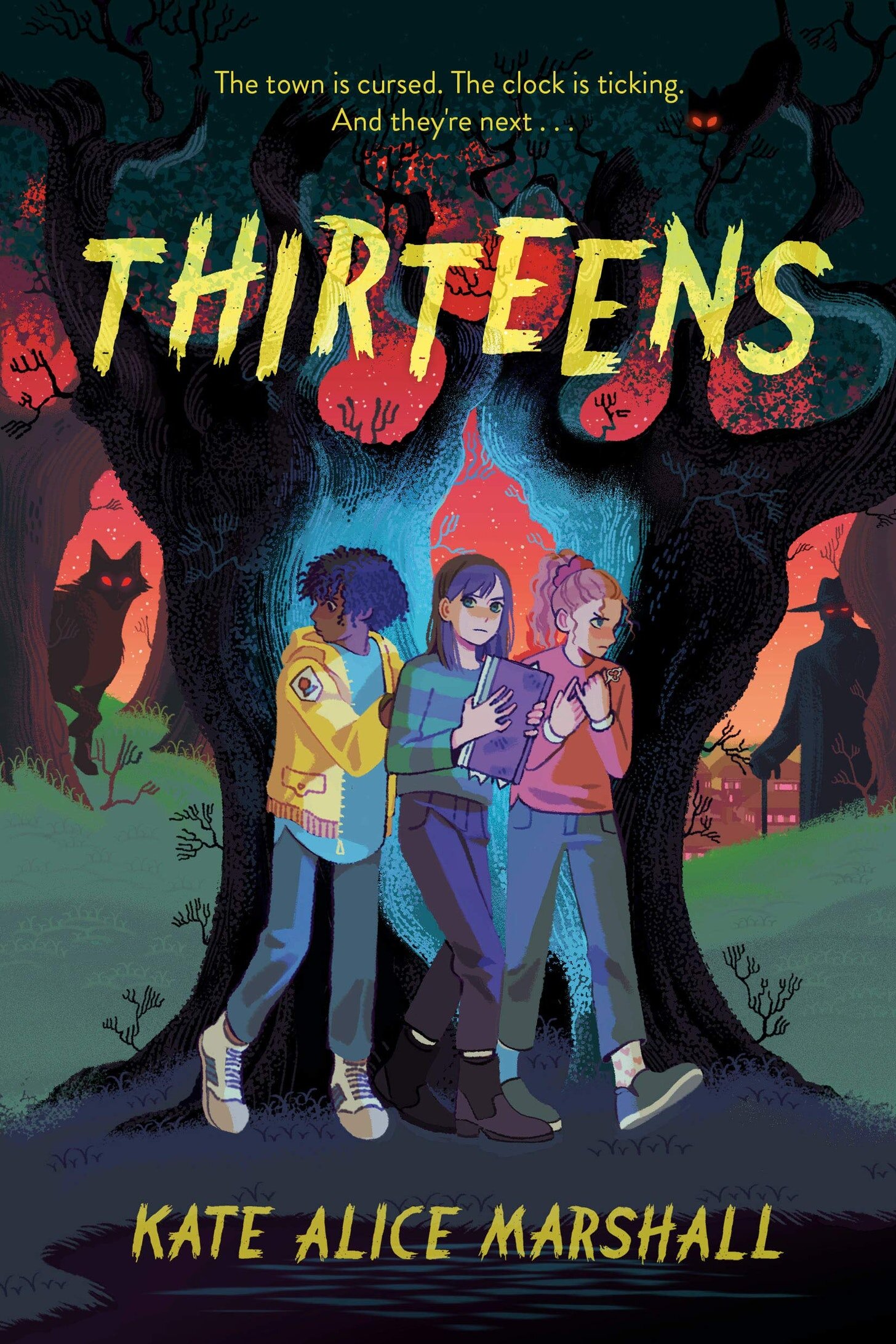Strange Birds: A Field Guide to Ruffling Feathers, by Celia C. Pérez
A book about a group of very different girls who come together to form their own, secret alternative scout troop?
A book about those same girls discovering and then enacting small acts of creative protest in an effort to enact change?
A book about family, friendship, history, social justice, delicious desserts, and BIRDS?
That opens with a line from Stephen King’s The Body/Stand By Me?
Can you see my cartoon heart eyes from wherever you are? Because I have them. This is one of those books that feels tailor-made to burrow its way into my heart—er… in a good way, not a gross way—and stay there forever and ever.
From Strange Birds: A Field Guide to Ruffling Feathers:
“We each write a word,” Lane said. She had thought a little about what the oath could be. “A word that represents you, something that is important to who you are and that you want to be important to the group too.”
Lane thought about their words. The only sound in the tree house was the rustle of leaves and the occasional scribbling and erasing. When they had all put their pencils down, Lane collected the papers and read their words.
“Truth. Kindness. Justice. Community.”
“Those are good words,” Cat said. Aster nodded approvingly.
Four girls—a journalist, an artist, a chef, and a birdwatcher—come together in a treehouse. At first, it’s out of curiosity and summer boredom; as time goes by, it’s about friendship and a common goal.
Chapter by chapter, Strange Birds rotates focus between the four girls—Ofelia, Lane, Aster, and Cat—as they navigate their extremely new friendship and sometimes-prickly group dynamics, their various struggles and worries at home, and they work to convince the town’s official scout troop to discontinue use of a historical object with an ugly history.
It touches on how our understanding of history is very much affected by who’s doing the telling—and even more specifically, how social and political and economic power give the teller authority, whether that authority is well-placed or not—and Pérez weaves in a million little historical details and tidbits, from mentions of Ida B. Wells and Nellie Bly to the formation of the Audubon Society AND the creation of Audubonnets.
She shows how some things about the official Scout troop—the Floras—are intensely in need of an update, but it’s not about tearing everything down, as she ALSO shows how some of the Flora activities are pretty cool. She’s straightforward and honest about the risk/reward of protest, and about how race and class and connections are a huge factor—that the world isn’t fair, and that a group of people all “guilty” of the same thing might not be punished in the same way. And she shows how speaking up can inspire others to speak—and step—up, too.
All of that sounds very serious—and really, all of that IS serious—but Strange Birds doesn’t read serious.
Ofelia writes hilarious pithy headlines in her notebook in response to daily annoyances and frustrations:
Dead Body Found at DiSanti Mansion. Boredom Sought for Questioning
Parents Leave Oppressive Country, Ironically Form Oppressive Household
…and even though this is very much a story about a group of girls with a specific goal, at its core it’s about a group of kids growing up and beginning to interact with and understand the world on a different, broader level. This line brings all that together for me:
Everything was so dangerous, Ofelia thought. She felt empathy for the creature that had no control over something so basic as where it wanted to be.
Is that not a perfect encapsulation of being that age? My heart.
As much as I loved everything about this book, the scenes I loved the MOST were the scenes in which the girls were simply talking amongst themselves, whatever the topic. Their conversation is so real and so funny—those scenes are my very favorites in a book full of favorites. When I was done reading, I missed them immediately, and I wanted to know what will happen to them over the school year, and then during the next summer and the next.
If this is a stand-alone, so be it—I am grateful for whatever time I have with these girls—but if a sequel is announced, I will absolutely do cartwheels.










